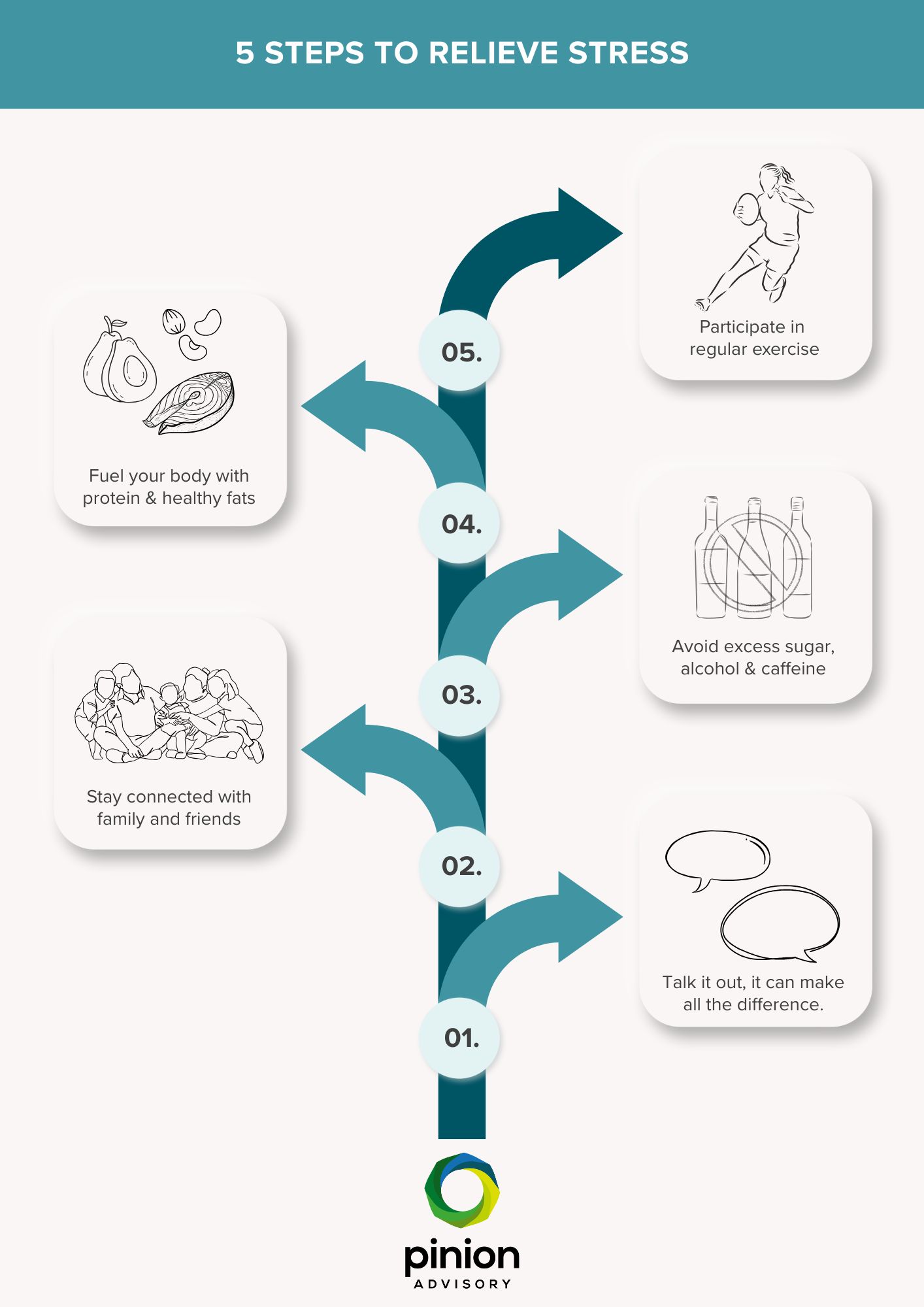The body’s stress response is truly fascinating. Cortisol, the primary stress hormone that makes us feel panicked, also plays a vital role in several essential bodily functions:
- Energy regulation – It helps the body use carbohydrates, fats, and proteins efficiently and increases blood sugar levels.
- Immune support – It helps fight inflammation and boosts immune function.
- Heart health – It assists in maintaining healthy blood pressure.
- Natural alarm clock – It helps wake us up in the morning.
When stress becomes chronic, things can quickly spiral out of control. We struggle to sleep, become more susceptible to illness, gain weight, feel depressed, and face a significantly higher risk of premature death.
A sobering statistic: Australian farmers are nearly 59% more likely to die by suicide than the general population. Research from the University of Adelaide found that just one additional month of extreme drought increased the suicide rate by 32%.
The Good News
A recent Harvard University study revealed that changing how we think about stress can dramatically improve our health. When participants viewed their stress response as helpful rather than harmful, the blood vessels around their hearts remained relaxed, despite them still experiencing all the common stress symptoms. These individuals felt less stressed, made better decisions, and significantly reduced their risk of heart attack.

5 Things you can do that cost nothing
- Your mindset matters. If you're struggling to stay positive, please reach out to someone. A single conversation can make a huge difference to how we’re feeling.
- Stay connected. In tough times, human connection is more important than ever. Reach out to family or friends.
- Watch your intake. Avoid excess sugar, caffeine, and alcohol—especially after 7 p.m.
- Fuel your body. Eat enough protein and healthy fats to support your energy and mood.
- Move and breathe. Activities like deep breathing, mindfulness, and regular exercise are powerful tools to calm the stress response.